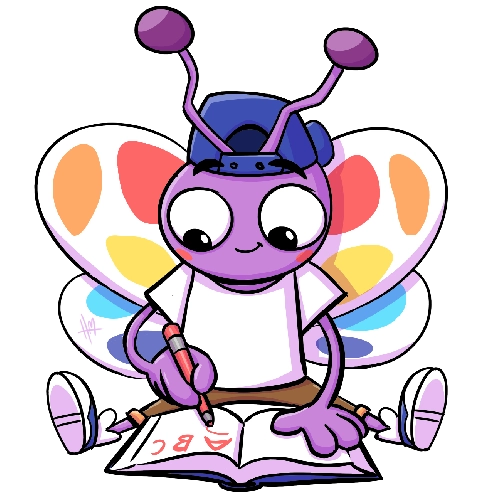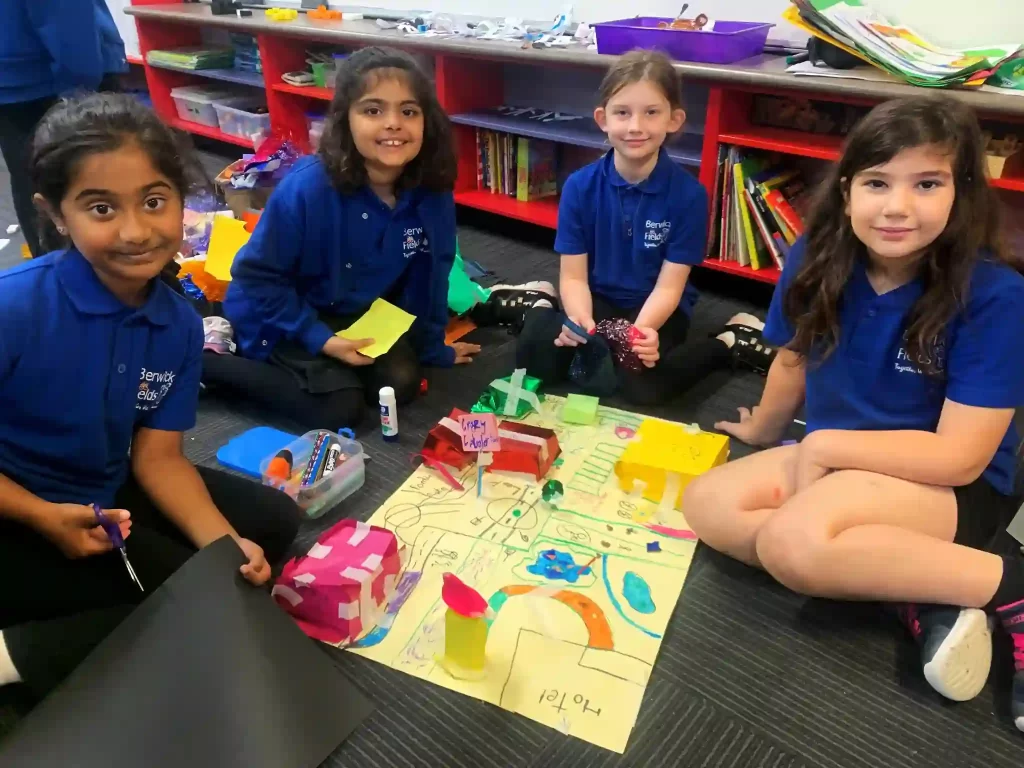
Literacy

At Berwick Fields Primary School, we are committed to providing our students with a dynamic, evidence-based approach to literacy learning that is consistent across our school and driven by the Victorian Curriculum.
Students learn to be successful readers, writers, speakers and listeners and are exposed to a range of strategies that they can draw on to progress their own learning throughout their journey with us.
At BFPS all students are engaged in our Literacy program for two hours each day.
Our Literacy program incorporates whole class teaching, small group and individual work based on student needs. Whole class reflection of student learning is included at the end of each session.
Reading and Viewing
Students are constantly challenged to further develop their reading skills, to both foster their love of reading and develop strong comprehension skills to become critical, deeper thinkers. Students are supported to develop skills in comprehension (I understand what I read); accuracy (I can read the words); fluency (I can read accurately, with expression, and understand what I read) and developing broad vocabulary (I know, find, and use interesting words).
Our Early Years program (P-2) delivers a rigorous and structured approach to phonological awareness, synthetic phonics, word decoding and language comprehension. As a student’s decoding ability increases there is an enhanced emphasis on developing key comprehension strategies.
The Sound Waves phonemic approach is implemented at our school. This uses a sound-to-letter strategy which acknowledges that sounds can be represented more than one way in written form. This phonics approach focuses first on the basic units of sound in our language – phonemes. It then explores the letters that represent these sounds and how they can be put together to form written words. Sound Waves also covers key language concepts including prefixes, suffixes, Latin and Greek roots, synonyms, homophones and more.
Writing
Writing involves students in the active process of conceiving, planning, composing, editing, and publishing a range of texts.
Writing involves using appropriate language for purposes or occasions, both formal and informal, to express and represent ideas and experiences, and to reflect on these aspects.
It involves the development of knowledge about strategies for writing. Students develop understandings and skills to use language conventions (grammar, punctuation, spelling) at an appropriate standard for their year levels.
Our whole-school approach to writing has classroom teachers modelling various genres, students choosing their own writing topics, Writers’ Notebooks, student/teacher conferencing and students regularly sharing their writing with peers, for both enjoyment and to gain feedback from classmates.
Students are encouraged to publish their works, which includes, but is not limited to, digital forms. Handwriting is also an important element of the writing program and is explicitly taught from Foundation to Year 4.


Speaking and Listening
Speaking and listening refers to the various formal and informal ways oral language is used to convey and receive meaning.
It involves the development and demonstration of knowledge about the appropriate oral language for audiences and occasions, including body language and voice.
It also involves the development of active-listening strategies and an understanding of the conventions of different spoken texts.
In Speaking & Listening we offer a variety of opportunities for students to develop their skills and to speak in front of small groups, their class, year level and at school assemblies